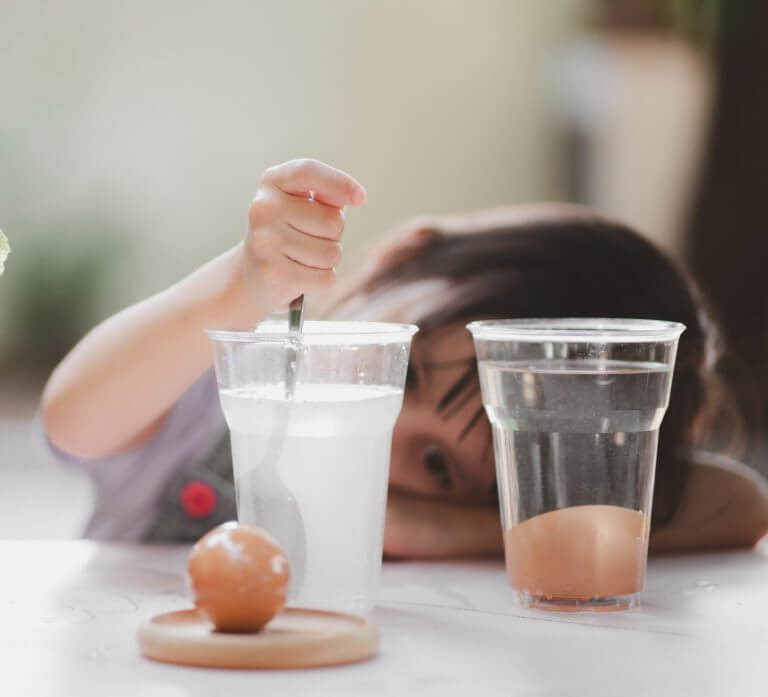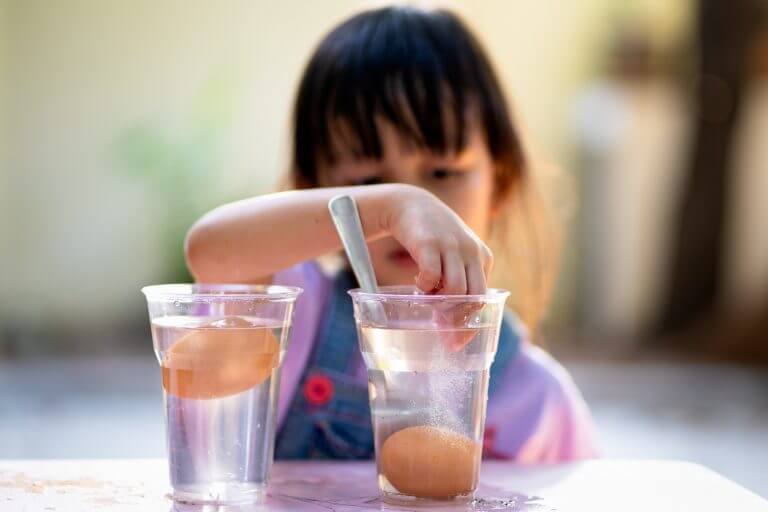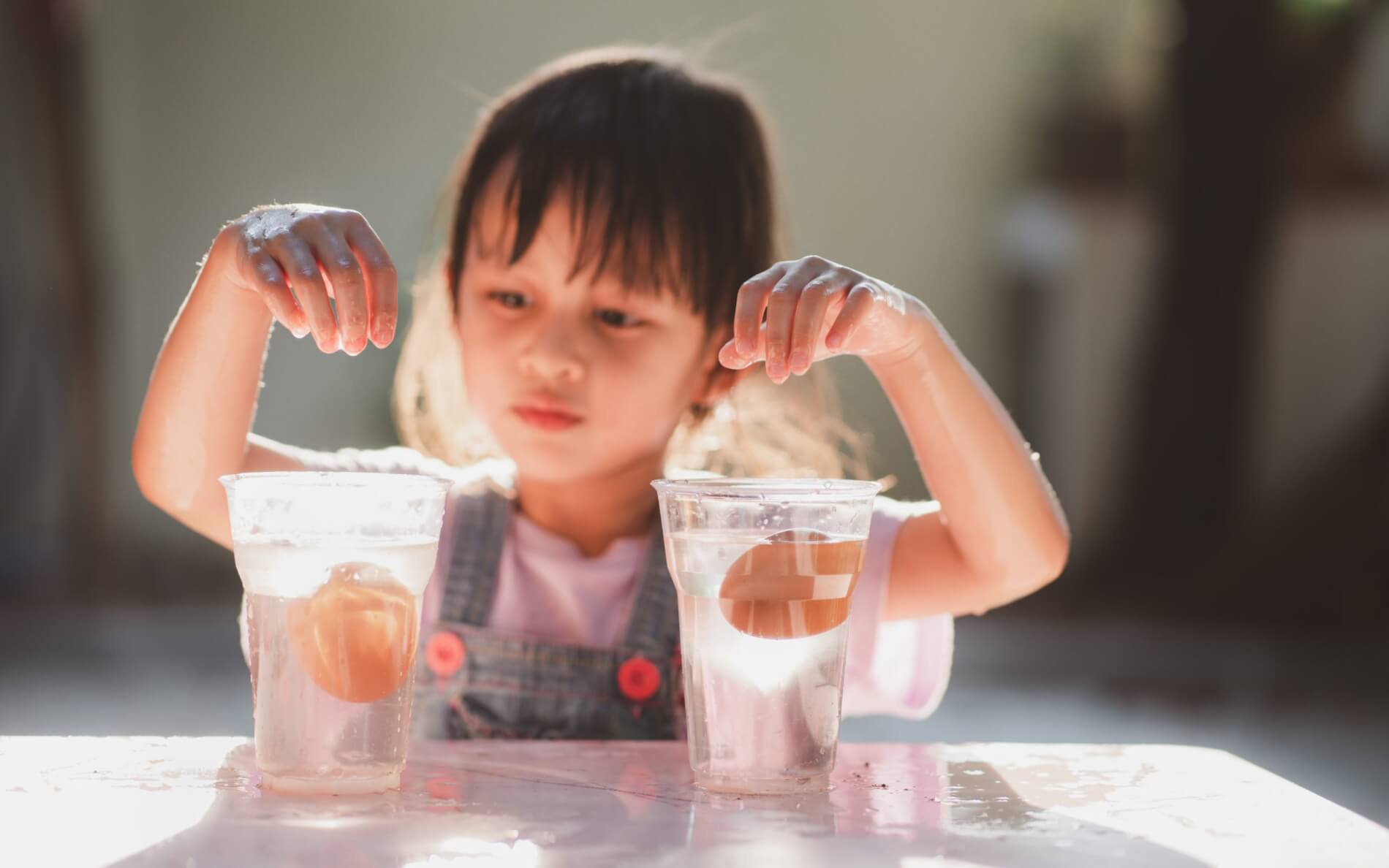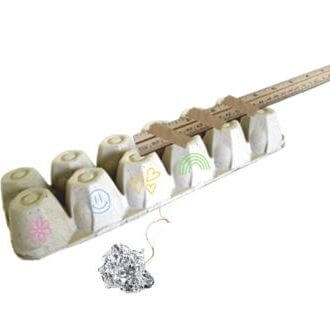
Who knew with just a few household ingredients, your students could experience their very own scientific eggs-periment! Try this simple sink or float experiment with your class using the scientific method and just a few items.
What you need:
- 2 glasses filled with water
- 2 fresh eggs
- table salt

Step 1: Preparation
To begin, you want to prepare your materials to set up the experiment. You can do this ahead of time or involve your students in the process.
Fill two cups with water if you haven’t already done so. Then stir 1/4 cup (50 ml) of salt into one glass until dissolved.
Step 2: Documentation
While waiting, use the provided documentation page here and ask your students to mark their hypothesis of what specifically they think will happen once the fresh eggs are deposited in each glass.
Step 3: Action
Now, place one fresh egg in the glass of regular water. Allow time for your students to observe what happens and then document the results on their page.
Place the second fresh egg in the glass with salted water. Again, allowing time for your students to observe what happens and document the results on their page.

Step 4: Reflection
Now it’s time to have your students compare and reflect on the results of both glasses of water. What do they notice? What happens to the egg in one glass versus the other glass? Engage in discussion so students can share their experiences.
Step 5: Conclusion
Finally conclude the experiment by sharing why the eggs responded with such outcomes.
Note: When you dissolve salt in water, you increase the density of the water. This makes the water “heavier” than the egg, which makes the egg float in the water. You can further extend this eggs-periment by adding just enough salt to encourage the egg to float halfway in the glass!

Happy eggs-perimenting!






